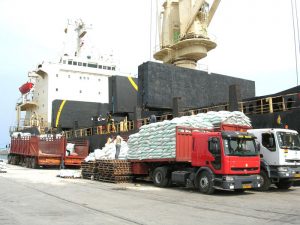Last week, the Ghanaian Cedi was recorded as the best performing currency in the world.
This short burst of positive momentum is as a result of Ghana’s plan to reorganize its local debts. Read the story here.
This report is courtesy of Bloomberg which revealed that the rise in currency value is coming alongside optimism of realizing the $3 billion bailout the country has been requesting from the International Monetary Funds for months.
The report reads in part; “The cedi has rallied 10% in the past five days, the biggest advance among about 150 currencies tracked by Bloomberg. That’s a turnaround for an exchange rate that had lost half of its value this year and occupied the bottom slot in the charts.”
More extracts from the report read, “The currency was the cheapest in Africa, more than 30% undervalued versus its 25-year history last week, so some rebound after the huge fall recently isn’t that surprising,” said Charles Robertson, the global chief economist at Renaissance Capital Ltd. in London. Also we have the IMF in town, which should pave the way for dollar support.”
A few months back, the exact opposite of this news was reported, revealing that the Ghanaian Cedi was the worst-performing currency in the world. Read the story here.
This news sparked outrage and protests on the streets of Accra. The protesters also made their way to the Parliament where several MPs started to call for the dismissal of the country’s finance minister Ken Ofori-Atta.
Drama within the government chambers quickly ensued and fortunately for the finance minister he was voted to retain his position. This is perhaps a result of some of his office’s initiatives, one of which is directly linked to the appreciation of the Cedi.
Ghana is one of Africa’s most prominent regions, its recent history with governance and development has been impressive, to say the least. So, it’s not far-fetched to think that this country can recover from its worst economic crisis in decades.






